CV Analyzer
The CV analyzer evaluates a candidate's resume by comparing it to the job description, focusing on semantic relationships rather than relying solely on keyword matching. Unlike traditional analyzers that depend on specific keywords, this advanced AI tool, powered by an NLP model, uncovers logical connections within the text.
This enables a deeper understanding of the candidate's qualifications and experience, ensuring the resume content aligns closely with the job requirements for a more precise evaluation.
The AI system is designed to continuously learn and adapt. It updates the resume suitability scores as candidates progress through stages such as interviews and salary negotiations. With each candidate processed, the system becomes more accurate, refining the effectiveness of the analyzer and delivering increasingly reliable assessments of resume-job alignment.
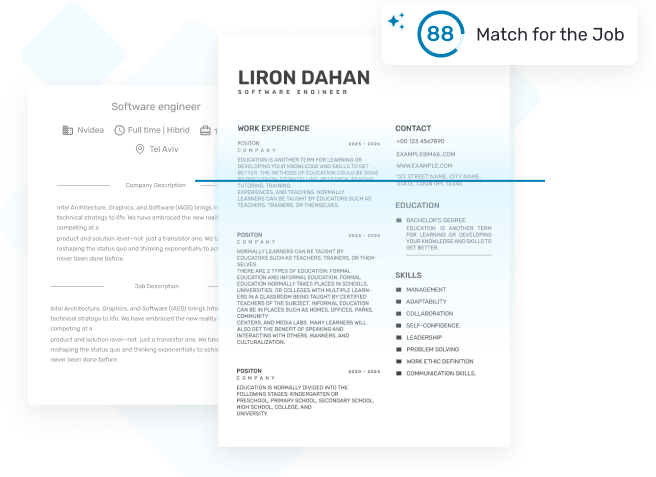
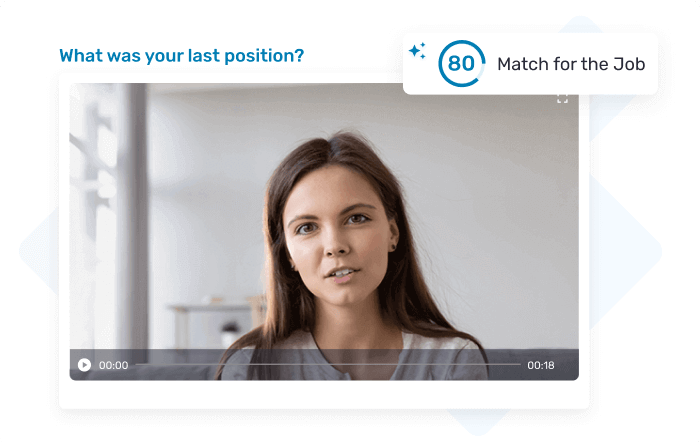
AI Interview
AI virtual interviews – available in both video and chat formats – are revolutionizing the hiring process through dynamic, personalized assessment technology.
Chat interviews leverage Natural Language Processing (NLP) to respond in real-time to candidate answers, analyzing communication style, job preferences, and alignment with position requirements. The interview's adaptive nature ensures each candidate receives personalized questions based on their resume and responses, creating a more relevant and engaging experience.
In the Video Interview, candidates record responses to customized HR questions, enabling thorough evaluation of communication skills, body language, and answer quality. The AI-powered system analyzes tone, expressions, and speech patterns, providing valuable insights into interpersonal abilities and role suitability.
Both interview types conclude with a Job Success Prediction – an AI-generated summary highlighting your strengths, development areas, and potential organizational fit.
AI Situational Judgement Test
An AI-powered Situational Judgment Test transforms how candidates are evaluated by offering customized, adaptive assessments that align with the specific role and your company's culture.
Unlike conventional SJTs, AI-driven SJTs create scenarios tailored to the job requirements, a candidate's resume, and real-time responses, delivering a highly relevant and engaging experience.
The system offers valuable insights into each candidate's thought processes and suitability for the position by evaluating critical factors like decision-making, teamwork, empathy, and leadership. Whether integrated into video interviews or used as a standalone assessment, the AI SJT accelerates hiring, enabling more precise decisions while identifying candidates who are the right fit for your company's values and objectives.
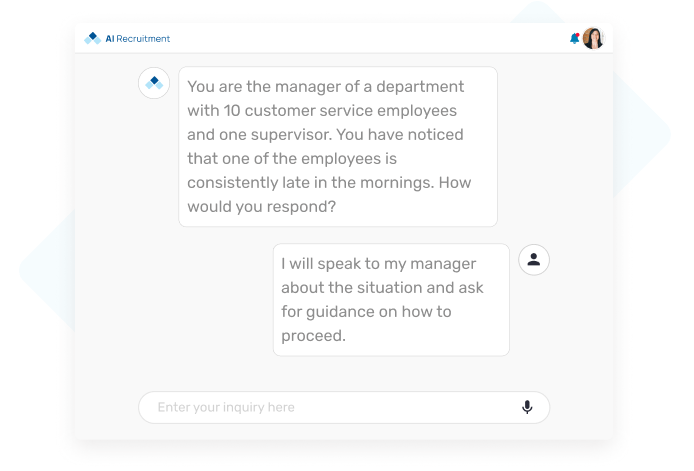
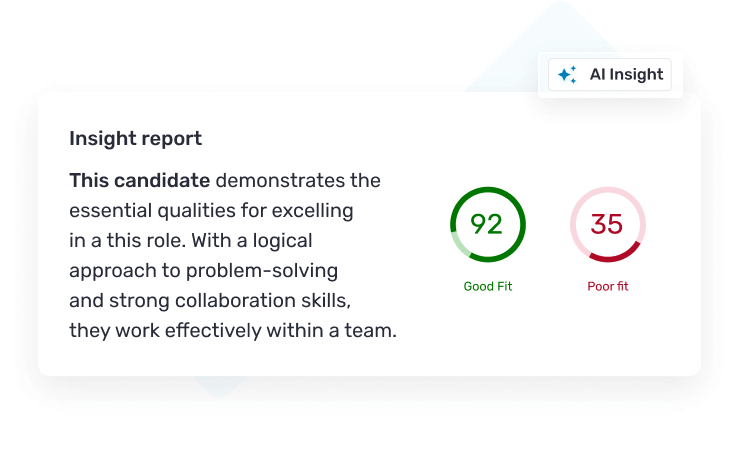
Candidate Insight Report
AI-powered analytics and reporting that provide you with detailed insights into each candidate, combining scores from every stage of the hiring process into a comprehensive report.
These AI-generated reports deliver a clear overview of each candidate’s performance, highlighting their key strengths, potential areas for development, and overall alignment with the role.
This equips you to make well-informed, evidence-based hiring decisions while streamlining and refining your recruitment strategy.
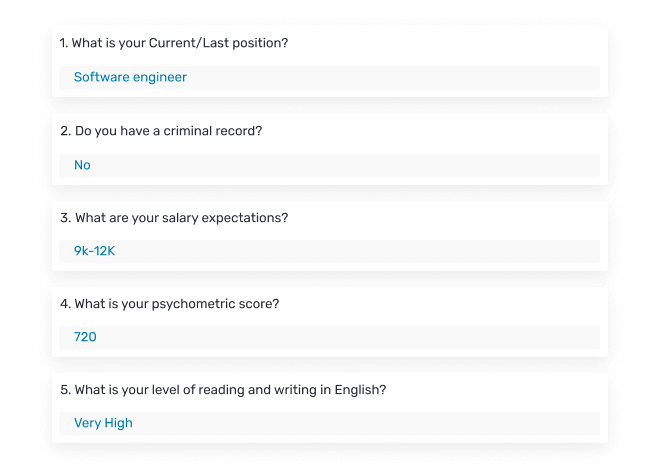
Employer Questionnaire
The HR questionnaire covers key job-fit topics typically addressed in early interviews, such as work experience, salary expectations, availability, and other role-specific details. You can customize the questionnaire by choosing from the system's pre-built question bank or adding your own tailored questions.
This screening tool streamlines the hiring process by prioritizing qualified candidates right from the start, enabling you to quickly determine whether they meet the role's basic requirements. It eliminates the need for initial phone interviews, saving valuable time for both recruiters and candidates.
Assessment Test
Pre-employment assessments effectively evaluate candidates on various levels, ensuring they are a strong match for the role and your company's culture.
These assessments measure essential attributes such as skills, aptitude, cognitive abilities, integrity, personality, and technical expertise, including proficiency in areas like coding or mechanical tasks.
By customizing the tests to fit the unique needs of the position and your organization's values, these tools deliver a holistic view of a candidate's qualifications. This enables you to identify individuals who not only have the technical and functional skills required but also align with your company's culture.
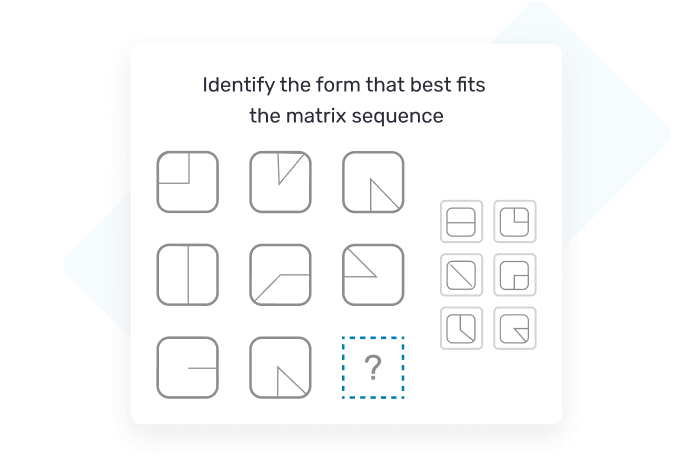
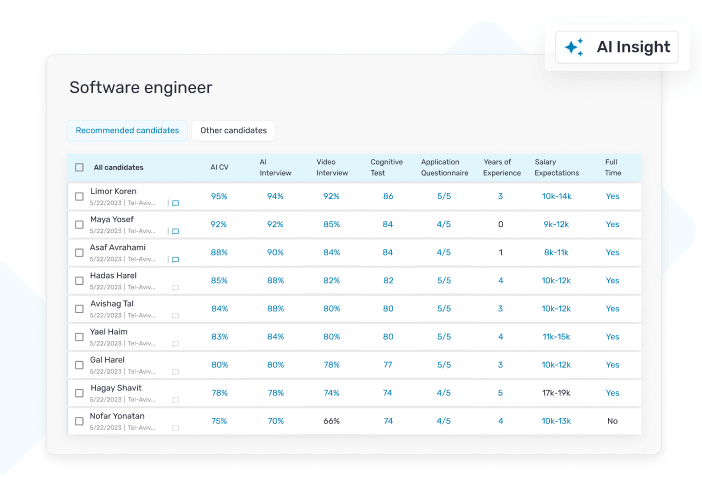
Candidate Dashboard
A centralized dashboard that simplifies the hiring process by bringing all recruitment data into one easy-to-use management tool.
Once your hiring pipeline is set up, the dashboard displays all applicants, their resumes, and their scores from each stage of the process. Top candidates are automatically highlighted at the top of the list, making it easy to identify the most qualified individuals right away.
This streamlined system ensures top talent is prioritized, enabling quick actions in a competitive market. You can effortlessly access key candidate details and manage advanced recruitment stages, such as scheduling interviews, adding notes to candidate profiles, and maintaining instant communication through WhatsApp, email, phone, or video calls.
Personalized Recruitment
AI Recruitment provides flexible workflows designed to meet your organization's unique needs. You can easily customize the hiring process and integrate it with communication tools and calendars for a seamless experience.
The platform enables you to build a tailored recruitment pipeline, including resume screening, employer questionnaires, cognitive assessments, video interviews, phone screenings, take-home assignments, and in-person interviews.
Each stage can be adjusted to match the specific requirements of the role and your company, eliminating the need for external services and ensuring a fully streamlined hiring process.
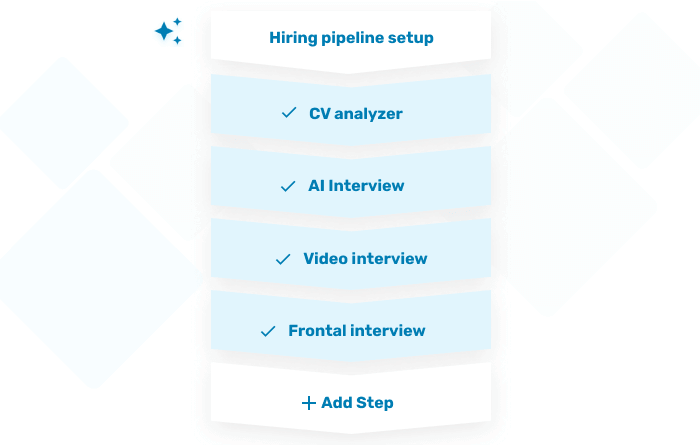
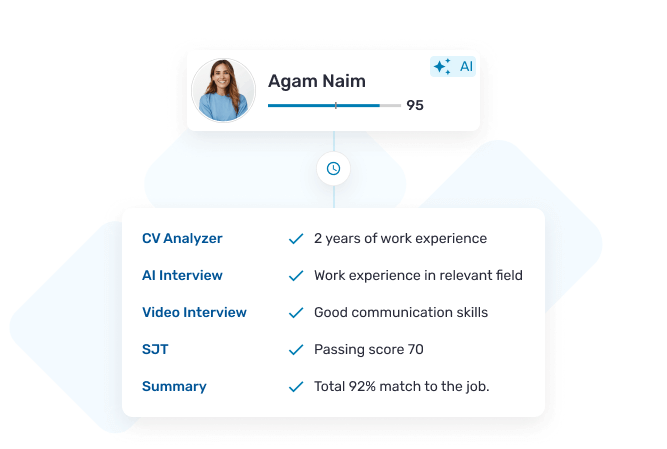
AI and Continuous Improvement
Driven by AI and data-backed insights, the system evolves and adapts with every interaction, enhancing the efficiency and accuracy of candidate selection over time. Analyzing semantic connections between resumes and job descriptions moves beyond simple keyword matching to deliver a more thorough and nuanced evaluation of a candidate's suitability.
As candidates progress through the hiring process, their data—such as interview performance and job offers—updates the system, sharpening its understanding and improving the accuracy of future assessments. This continuous refinement allows the ATS to become increasingly effective at identifying the best candidates, streamlining the recruitment process with greater precision and efficiency.
Benefits of AI Recruitment ATS:
- Speed and Accuracy: Quickly and precisely source candidates, giving you a competitive edge in hiring.
- Thorough Screening: Provides a comprehensive evaluation of all candidates, regardless of when they apply.
- Efficient Workflow: Simplifies candidate sorting and data collection, enabling faster decision-making.
- Flexibility: Custom solutions for organizations of all sizes, from startups to large enterprises.
- All-In-One Platform: Created by Noam Institute, this platform offers a full suite of assessments and tools for a superior user experience.
- For $1300 + VAT, you can get premium job ads, expert screening, advanced management, and an optional psychologist's assessment for $325
With over 30 years of expertise in workforce optimization, Noam Institute's AI Recruitment is a dependable, innovative solution for modern hiring needs.


